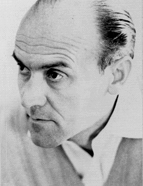

The letters he sent to the Conde de Lavradio were a way of ‘unburdening’ himself, addressed to one of the few people who understood the king. The ‘sombre’ aspect evident in his physiognomy gave him a ‘sad, taciturn appearance’. During his short reign (1855–61) he did not sign any decree presented to him at the Council of Ministers without first taking it to his private office and analysing it, regardless of the subject matter. His ‘integrity of character’ (in the face of the dominant corruption, led him to create a Green Box, placed at the gateway of the Palácio das Necessidades, where anyone who wished could leave their suggestions, along with a Blue Box, for receiving requests from those seeking alms (ibidem). In 1854 and 1855, during the regency of his father, D. Fernando, D. Pedro and his younger brother, D. Luís, made trips abroad. Ruben Andresen Leitão considered that these journeys, which put him in direct contact with the innumerable innovations in the mechanical world that were taking place in full view of the world, were fundamental in shaping his double wish for the moral and material reform that characterized the whole of his reign. Since, then, they recorded the projects he wished to put into practice in Portugal, he believed it was the Diaries that resulted from these journeys that were most relevant for studying his way of thinking (the notion of science, of direct application and of mechanical progress). Leitão tells us that at just sixteen years of age, D. Pedro read and studied everything, learning about the application of steam to agriculture, examining English libraries, admiring the pictures at Buckingham Palace, and allowing himself be captivated by the Natural Science Museum, the Royal Academy, the Royal Polytechnic Institution, by Samuel Colt’s revolver factory. In his diaries he wrote down his reflections on, for example, the parliamentary bill for army promotions, the reorganization of the departments within the War Ministry, or opinions received on the need for extra field artillery (ibidem). He noted that the whole of D. Pedro’s reign was distinguished by a spirit of reform, and gave examples such as the law of 14 July 1856 creating a provisional new disciplinary code for the army, which abolished flogging and blows with the flat of the sword. Despite all this, though, Ruben Andresen Leitão believed that the monarch’s greatest achievements had to do with public education in Portugal. He points by way of example to the creation during this period of the Escola Normal and the Escola Modelo (1860), the inauguration of 436 schools for public instruction, and of the Curso Superior de Letras (1861).
